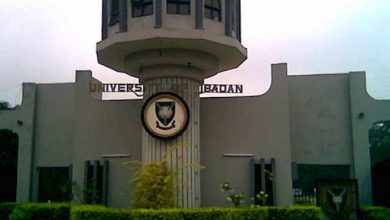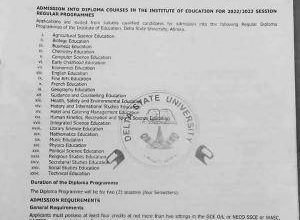
10 Factors Affecting Curriculum Innovation in Nigeria
Factors Affecting Curriculum Innovation in Nigeria- Curriculum innovation in Nigeria is the systematic process of updating the educational curriculum to accommodate the dynamic needs and goals of students and society at large. It includes incorporating new technologies, new subject matter, and teaching methods to improve the quality of education and get students prepared for work and professional life.InformationGuideNigeria
In recent years, there have been efforts to innovate the educational curriculum in Nigeria, with a focus on incorporating technology and 21st-century proficiencies into the curriculum.
👉 Relocate to Canada Today!
Live, Study and Work in Canada. No Payment is Required! Hurry Now click here to Apply >> Immigrate to CanadaHowever, these efforts seem not to have produced many results. To get to its desired destination educationally, Nigeria has to see curriculum innovation as an endless continuum.
Read Also: Factors Affecting Curriculum Development In Nigeria
What Is Curriculum?
Curriculum refers to the courses and content of study, information, and learning materials that are provided in an educational program. It outlines the subjects, activities, and topics that are taught to students and the aims and objectives to be achieved in the process. A Curriculum is also referred to as the “what” of education, as it gives the scope of what students will learn and how it will be taught.
What Is Curriculum Innovation?
Curriculum innovation refers to the process of introducing or revising the current educational content, delivery methods, and targets of the curriculum to enhance the quality of education and meet the ever-changing needs of society. Curriculum innovation is also used to ensure that the curriculum remains relevant in a rapidly changing society. Curriculum innovation may occur in many ways, from small changes made to the existing curriculum, or to carrying out a total redesign of the curriculum.
Read Also: 10 Factors Affecting Unemployment In Nigeria
Types Of Curriculum Innovations
There are several different types of curriculum innovation, some of which are outlined below
- Curriculum Redesign: Curriculum redesign involves a total overhaul of the curriculum to better align with the needs and goals of the students and society. It entails making important changes to the subjects taught, and the methods used for teaching and assessing the students.10 Economic Challenges In Nigeria
- Curriculum Development: The development of the curriculum has to do with the creation of new curriculum materials, such as textbooks, assessments, lesson plans, etc.
- Curriculum Implementation: Curriculum implementation has to do with the introduction of new or updated curriculum materials into the classroom. It also entails providing the necessary training and support for the teachers.
- Curriculum Enrichment: As the name implies, it involves adding additional content, subject matter, and activities to the curriculum to give the students a robust15 Best Industries in Nigeria
- Curriculum Evaluation: Evaluation entails the continuous process of assessing the effectiveness of the curriculum, and making necessary changes and adjustments to improve the learning outcomes of the students involved.
Benefits of Curriculum Innovation
There are several benefits of curriculum innovation in Nigeria,
👉 Relocate to Canada Today!
Live, Study and Work in Canada. No Payment is Required! Hurry Now click here to Apply >> Immigrate to Canada- Improved learning outcomes: By incorporating relevant and new content, curriculum innovation can help to enhance learning and prepare them for the future of work.
- Better alignment with student and societal needs: Curriculum innovation helps to ensure that the curriculum stays relevant to the dynamic needs of society such as advances in technology and current changes in the job market and various professions.JAMB Portal
- Increased use of technology: Curriculum innovation involves the incorporation of new technologies which makes learning easier.
- Promoting problem-solving skills: Curriculum innovation also helps promote critical thinking, creativity, and problem-solving among students.
Read Also: 10 Factors Affecting National Development In Nigeria
History of Curriculum Innovation In Nigeria
Curriculum innovation in Nigeria can be traced to the colonial era when western-style of education was introduced by the British. During this time, the curriculum aimed at preparing students for administrative roles in the colonial government.200 Romantic Love Message
After independence, the Nigerian government has attempted to implement several curriculum innovations to enhance the quality of education in the country. In the 1980s and 1990s, the government implemented several reforms in the curriculum by integrating new subjects such as computer science. New teaching methods were also introduced. However, these efforts were not so successful as they were hindered by inadequate funds, poor teacher training, and corruption.
In recent times, curriculum innovation in Nigeria has been an ongoing process, with many challenges, but it is an important step to providing quality education in the country and aligning it with changing needs of society.
Read Also: 10 Factors Affecting National Security in Nigeria
Factors That Affect Curriculum Innovation In Nigeria
Several factors can influence curriculum innovation in Nigeria, including:
- Inadequate Funding: A lack of funding can affect the development and implementation of new curriculum materials, and make it difficult for adequate training to be provided for teachers.
- Poor Teacher Training: To a large extent, the quality of students is determined by the quality of teachers. This also affects curriculum innovation.NYSC Portal
- Lack of Political will: Incessant changes in government policies can hinder the implementation of curriculum innovation.
- Resistance from the community: Stakeholders and members of the community who are not comfortable with change can make it difficult to implement new curriculum materials or teaching methods.
- Restricted access to technology: Lack of digital resources can limit the ability to integrate technology into the curriculum.
- Inadequate infrastructure: A lack of necessary facilities such as internet, classrooms, and libraries, can make it difficult to enforce new curriculum materials or methods.
- Poor research and data: Inadequate data on the effectiveness of various curriculum materials can make it difficult to make better decisions.105 Good Morning Love Messages
- Inadequate assessment: Inappropriate assessment methods make it difficult to measure the effectiveness of new curriculum teaching methods.
- Socio-economic determinants: Socio-economic factors such as lack of parental care or poverty affect students’ ability to benefit from curriculum innovation.
- Cultural factors: Cultural factors like language differences can affect the implementation of a new curriculum.
Read Also: 10 Factors Affecting National Unity In Nigeria
Conclusion
In conclusion, curriculum innovation in Nigeria is a continuous process that aims to improve the quality of education and ensure that it meets the need of society. However, the implementation of the innovation has been a challenge. This is due to various factors such as limited funding, and inadequate teacher training, amongst others. To effectively meet these needs, the Nigerian government and other stakeholders must work together. This will make the process more efficient.
Check JAMB Result
Check and Confirm: How much is Dollar to Naira








